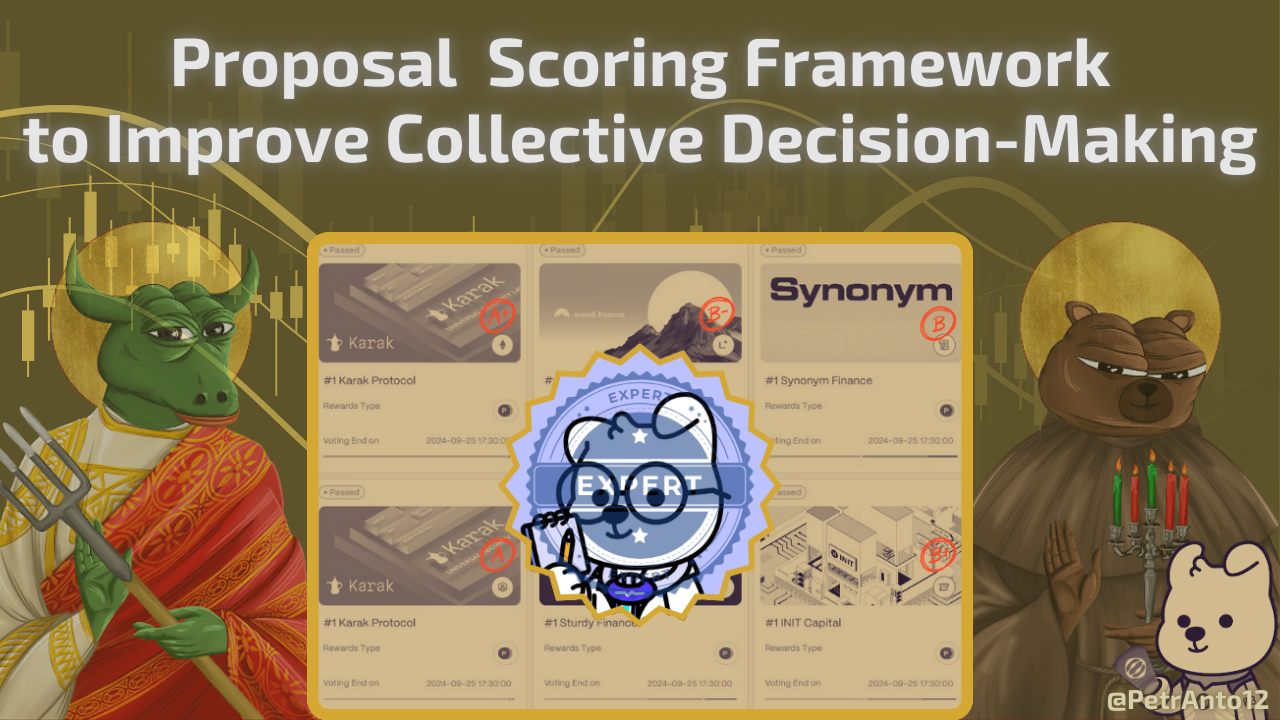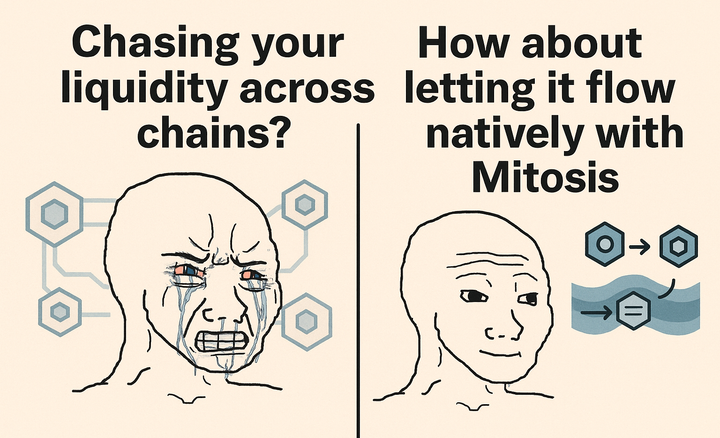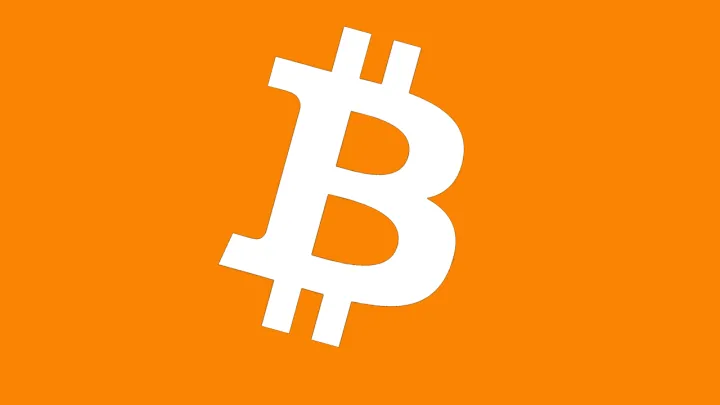Mitosis Governance - Proposal Scoring Framework: How to Improve Collective Decision-Making

Introduction: A Critical Moment for Mitosis DAO
Mitosis is currently bootstrapping its on-chain governance. This is a pivotal moment: one where every structural choice will deeply impact the clarity, legitimacy, and efficiency of collective decisions for years to come.
One of the greatest challenges in DAOs (Decentralized Autonomous Organizations) is to make complex, often technical proposals accessible and understandable to the full range of participants. When this fails, decisions become biased, participation drops, and governance power naturally centralizes into the hands of a few.
To address this, we have introduced in a previous article a concrete, scalable tool: the MRQ framework.
This follow-up article explores how Mitosis can leverage its expert community to integrate indicator scoring directly within proposal descriptions.
1. The Challenge: Complexity & Disengagement in DAO Voting
Evaluating proposals in a DeFi context requires understanding protocol security, regulatory exposure, liquidity dynamics, and composability. This complexity often overwhelms DAO participants — even those who are motivated and engaged.
This leads to predictable outcomes:
- Information overload: members face walls of audits, TVL graphs, and technical jargon.
- Low or passive participation: most voters follow the majority or abstain entirely.
- Implicit centralization: decisions are shaped by a handful of dominant voices or insiders.
This dynamic undermines the core promise of decentralization. And it’s not just about interfaces, it's a governance design flaw.
2. The MRQ Framework: Standardizing Evaluation
To tackle this issue, we propose a simple, reproducible framework: MRQ, which stands for Market - Regulation - Quality. It aims to reduce technical noise while maintaining analytical rigor, helping communities make more coherent and confident decisions.
The MRQ framework is structured around three dimensions:
- Asset Quality: audits, code robustness, dev activity, team credibility, and ecosystem alignment.
- Regulation: regulatory clarity, legal risk, and jurisdictional exposure.
- Market: adoption, TVL, growth momentum, liquidity, and strategic fit with Mitosis.
Each sub-criterion is rated as a percentage, and the final MRQ score is the average:

This score is not meant to be absolute truth, but a comparative signal to help DAO members rank proposals, not guess blindly.
3. Case Study: Mitosis EOL Votes - Summer 2024
In summer 2024, the Mitosis community voted to onboard five new DeFi protocols to the Ecosystem Owned Liquidity (EOL) program. We applied the MRQ framework to each candidate and compared the outcomes to actual on-chain voting results.

3.1 MRQ Scores Summary
Karak Protocol
- Asset Quality: 80%
- Regulation: 60%
- Market: 70%
- MRQ Score: 70.00%
Strong tech, solid demand, credible team. Some legal risk due to restaking model.
INIT Capital
- Asset Quality: 65%
- Regulation: 50%
- Market: 70%
- MRQ Score: 61.67%
Interesting composability, underappreciated by current adoption. Regulatory risk still unclear.
Synonym Finance (Syno)
- Asset Quality: 60%
- Regulation: 45%
- Market: 65%
- MRQ Score: 56.67%
Cross-chain ambitions, but unproven at scale. Fragmented liquidity.
Mendi Finance (Malda)
- Asset Quality: 55%
- Regulation: 50%
- Market: 60%
- MRQ Score: 55.00%
Weak dev activity at the time, unclear growth trajectory, low visibility.
Sturdy Finance
- Asset Quality: 60%
- Regulation: 40%
- Market: 65%
- MRQ Score: 55.00%
Innovative fixed-yield model, but had been hacked (~$800k). Narrow use case, low compliance.

3.2 Votes vs. Scores
| Protocol | MRQ Score | Yes Vote % | Participation | Comment |
|---|---|---|---|---|
| Karak | 70.00% | 95.78% | 38.92% | Strong alignment vote/score |
| INIT | 61.67% | 52.82% | 16.89% | Underestimated by voters |
| Syno | 56.67% | 50.48% | 16.68% | Very close to INIT, despite lower score |
| Mendi | 55.00% | 83.59% | 29.09% | Overvalued (UI bias suspected) |
| Sturdy | 55.00% | 53.29% | 16.69% | Unclear why it passed |
The takeaway: while Karak ranked #1 in both score and votes, INIT, a higher-quality candidate than Mendi, was far less supported.
One likely reason: proposal ordering bias. Indeed, Mendi was listed with a prominent position in the UI, which may have skewed perception.
4. MRQ as a Governance Compass
This misalignment between objective evaluation and final votes reveals the need for structured guidance. Not to override decisions — but to frame them properly.
Using a comparative framework like MRQ enables:
- Clarity on the relative value of proposals.
- Better participation via simplification.
- Bias reduction (herd voting, UI placement effects).
- Information equity between technical and non-technical members.
This mirrors issues seen in other ecosystems — Cosmos ecosystem especially, where stakers' governance is already a reality for long time — where most DAO voters simply “check the majority” and follow the crowd.
That’s not governance. That’s automation.
5. Culture Shift: From Passive Voting to Informed Action
Decentralized governance depends on informed participation. Yet most current DAO systems encourage lazy or opportunistic behavior (e.g., airdrop farming or “just click yes”).
We need to change the culture through:
- Tooling: dashboards, scoring models, filtering options.
- Education: explain mechanisms, not just results.
- Structural support: allow delegated experts or tiered review to filter low-quality proposals.
Without this structure, decentralization becomes fragile — or worse, a tool for insiders to legitimize control under the guise of community will.
Guidance does not undermine decentralization; in fact, it supports it.
When scoring is sufficiently detailed, it empowers voters to form their own opinions, whether they agree or disagree.
6. Where MRQ Fits: Mitosis DNA Phase 1 & 2
The DNA program launched by Mitosis is the right place to apply MRQ thinking.
- Phase 1 focused on onboarding aligned contributors and stabilizing incentives. Here, MRQ can act as a shared framework to align perspectives.
- Phase 2 gives full voting power to token holders to shape emissions, liquidity targets, and strategic direction. Without strong coordination tools, this phase risks chaos.
MRQ can help the community filter signal from noise — before this risk materializes.

Conclusion: Democratize, But Don’t Disorganize
Decentralization is not enough. For Mitosis to become a model of resilient DAO governance, it must also be readable, structured, and fair.
What we describe here is not a rigid scoring system, but a flexible tool to:
- Inform, not dictate votes.
- Elevate participation into strategic action.
- Build a long-term governance culture that balances transparency, agility, and responsibility.
If Mitosis succeeds in integrating this early on, it could become one of the most effective examples of second-generation governance design in DeFi.



Comments ()